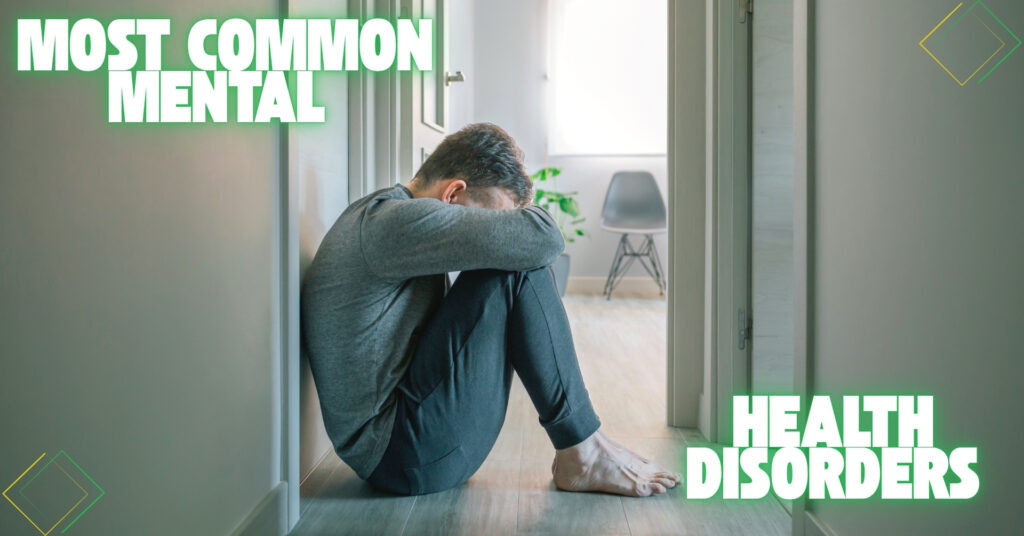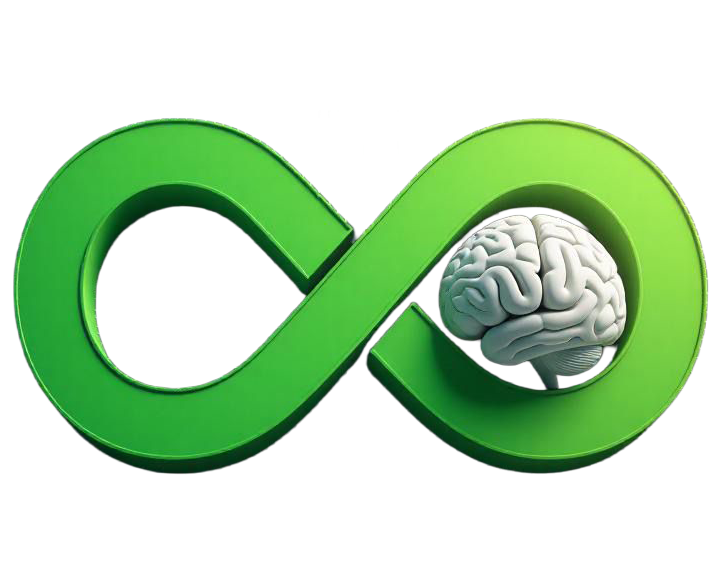
October 1, 2025
The mental health issue is more important than ever before.
Although it is not taboo anymore, mental health remains a highly significant subject of our everyday conversation. According to the statements made by the National Institute of Mental Health (NIMH), about 1 out of 5 adults in the United States alone becomes mentally ill every year. This means 57 million Americans have anxiety, depression, bipolar disorders, PTSD, or substance use disorders.
One can trace their long-term effects on the people around the patients. They impact families, workplaces, health, and society in general. The good thing, however, is that most of these diseases can be controlled and cured successfully, provided that we know the causes, their effects, and adhere to their treatment regimens, which are evidence-based.
This blog is dedicated to the thesis of the most common mental diseases in the U.S. With that, we are also going to discuss the cause, reveal the nutritional and physiological impacts, and provide some science-based solutions to mental health.

Commonest paranoid diseases of the U.S.
Anxiety Disorders
The most common is anxiety disorders, and they directly affect more than 40 million adult Americans. The common symptoms of anxiety disorders include excessive worry, panic attacks, nervousness, and sleep disorders.
- Etiology: The most significant causes will be genetic, stress in the long term, and trauma.
- Physiological/Nutritional Effect: High cortisol levels, gastrointestinal issues, deficiencies in magnesium and vitamin B12, and resolved anxiety.
- Recommendations: Attach the symptoms with Cognitive Behavioral Therapy (CBT), mindfulness, Magnesium, and Omega-3.
Depression
The first cause of disability in the world is depression. The prevalence of a major depressive episode in adults in the United States is more than 21 million in 12 months.
- Cause: Family predisposition, neurotransmitter imbalance, chronic disease.
- Nutritional/Physiological Effect: Low levels of serotonin, omega-3, and vitamin D; restlessness and weight gain or weight loss and irritability; unable to fall asleep.
- Recommendations: psychotherapy, exercise, antidepressants, omega-3 fatty acids, folate, and vitamin D.
Post-Traumatic Stress Disorder (PTSD).
An example of PTSD is due to a natural disaster, war, or abuse. In their lives, about 6 percent of Americans have PTSD.
- Treatment: Re-exposure to traumatic episodes in a gradual way; exposure to war.
- Nutritional/Physiological Effects: cortisol production or inflammation, poor sleep.
- Recommendations: Trauma (EMDR), psychotherapy, an anti-inflammatory diet, and antioxidant treatment.
Bipolar Disorder
Bipolar disorder is the misery of intensely melodramatic mood swings and depressive lows and characteristically euphoric highs, and it afflicts one in every adult in the US.
Etiology: genetic, anatomical brain disparities (Harvard Med, 2022).
Nutritional/Physiological Effects: Insulin resistance, weight change, and oxidative stress; low omega-3 levels are correlated with the severity of episodes.
Recommendation: Mood stabilizer therapy, talk therapy, sleep hygiene, and adjunctive omega.
Obsessive Compulsive Disorder (OCD)
OCD is characterized by intrusive thoughts and compulsive behavior; one in every 2.5 million Americans has it.
- Etiology: genetic and neurologic or serotonin imbalance.
- Nutritional/Physiological: Gastrointestinal disturbance, compulsion-related malnutrition.
- Therapy: ERP therapy, SSRIs, normal diets, normal glucose, normal sleep.
Eating Disorders
Why more treatments should be approved: Anorexia, bulimia, and binge eating disorder are eating disorders that afflict almost 9 percent of individuals in the United States.
- Etiology: heredity, social stress, trauma (NEDA, 2023).
- Nutritional/Physiological Effects: Organs, malnutrition, loss, and electrolytes.
- Recommendation: Some medical stabilization, treatment, meal plan, and replacement of micronutrients should be present.
Common Mental Health Disorders in the U.S.
| Disorder | Causes | Effects | Solutions |
| Anxiety | Genetics, stress, trauma | High cortisol, GI issues, nutrient deficiency | CBT, mindfulness, omega-3 & magnesium |
| Depression | Family history, neurotransmitter imbalance | Low serotonin, weight change, sleep issues | Therapy, exercise, antidepressants, vitamin D, omega-3 |
| PTSD | Trauma, war, abuse | Cortisol imbalance, poor sleep, and inflammation | EMDR, psychotherapy, anti-inflammatory diet |
| Bipolar | Genetics, brain differences | Mood swings, oxidative stress, and insulin resistance | Mood stabilizers, therapy, sleep hygiene, and omega-3 |
| OCD | Genetics, serotonin imbalance | GI disturbance, malnutrition | ERP therapy, SSRIs, a balanced diet, and sleep |
| Eating Disorders | Genetics, trauma, and social pressure | Malnutrition, organ stress, electrolyte loss | Medical care, therapy, structured diet |
| Substance Use | Genetics, stress, environment | Organ damage, nutrient loss, brain changes | Detox, therapy, support groups, nutrition rehab |
Conclusion
Mental disease disorders (anxiety, depression, PTSD, bipolar disorder, OCD, eating disorders, and substance abuse disorders) are common and can be cured. They are influenced by biological, psychological, and social factors, but lifestyle and diet as well.
It can be cured by guidance, drugs, and lifestyle modification. Keep in mind: there is nothing to be ashamed of in being mentally sick, in other words, being a human being. And to demand assistance is an indicator of power.






